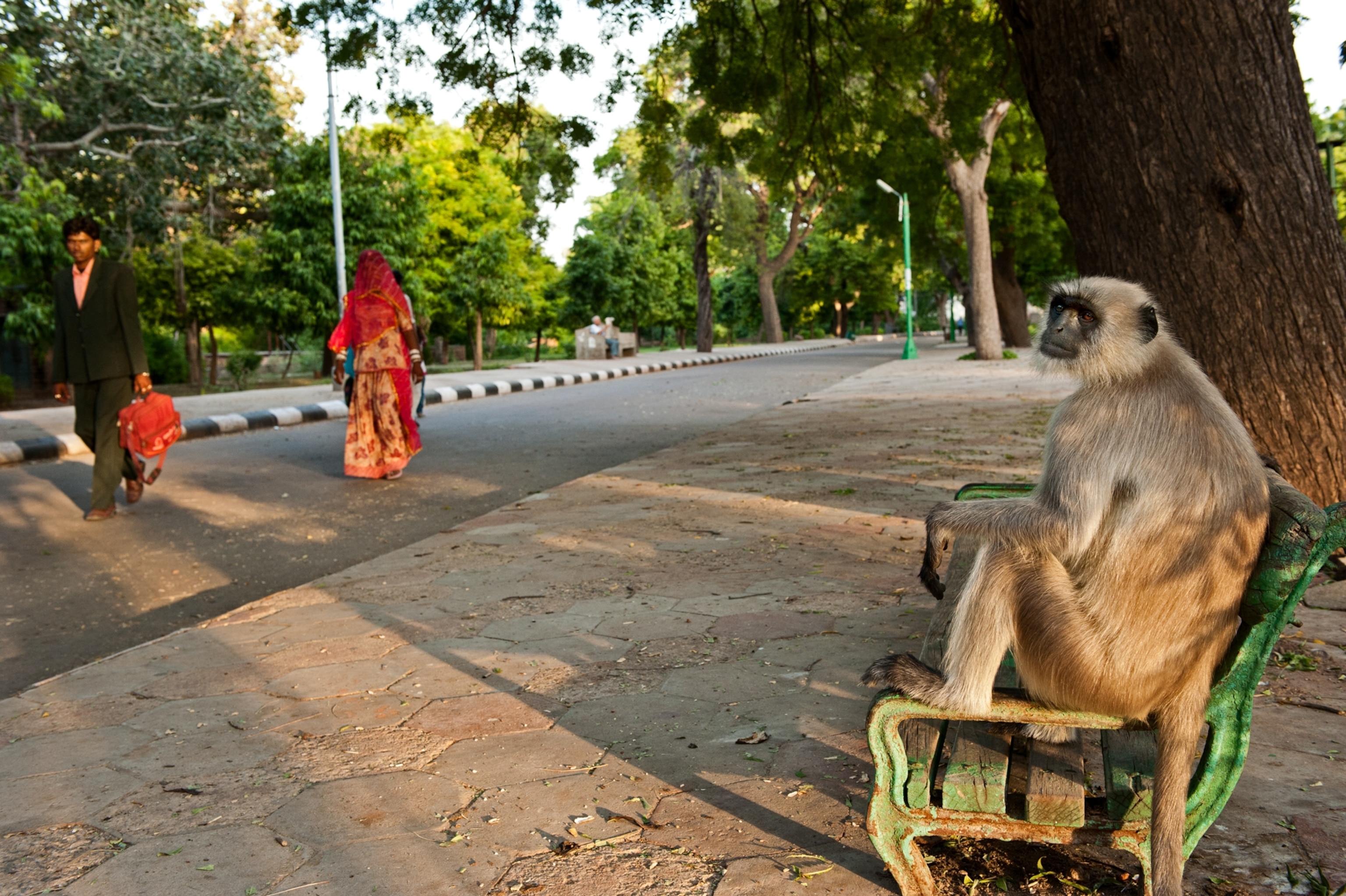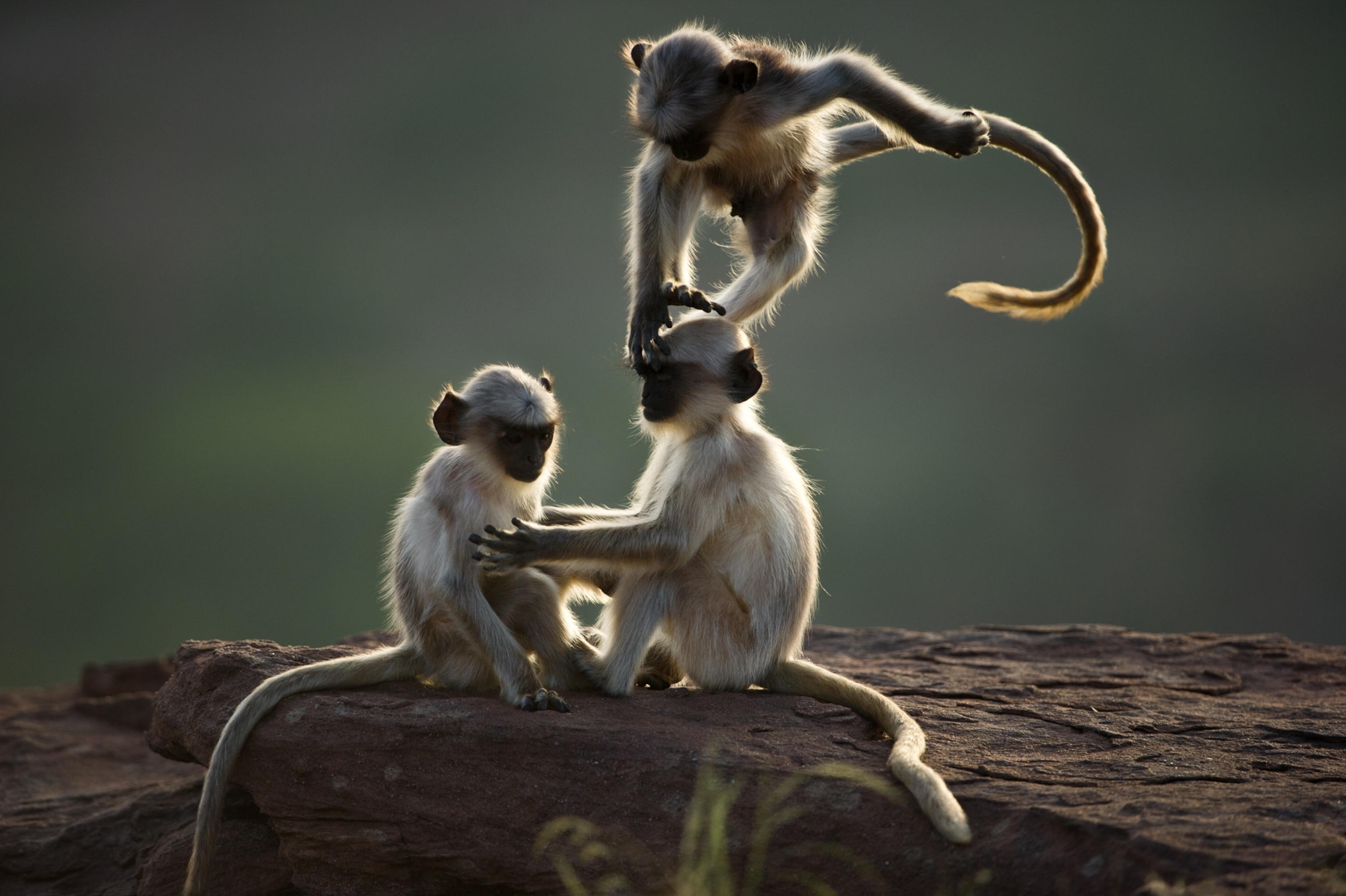A Monkey That Knows No Bounds
India’s leaping langurs can be holy, helpful, or even pesky.
In India monkey business takes on a whole new meaning. Hanuman langurs are trained in New Delhi to scare off aggressive rhesus monkeys and other wild animals that might roam into public spaces and cause mischief. When the city hosted the 2010 Commonwealth Games last October, its municipal council used 38 langurs to help with critter control.
These primates are valued as more than security guards. Hindus revere them as a symbol of the monkey deity Hanuman, whose simian army helped rescue Sita, the god Rama's wife, from a demon king, according to a Sanskrit epic. Langurs' black faces and extremities call to mind the burns that Hanuman suffered in the course of his heroism.
(Can Monkeys Befriend People? Experts Weigh In.)
The lifestyle of the monkeys reflects this state of grace. In the city of Jodhpur, at the edge of the Thar, or Great Indian, Desert, some 2,100 wild langurs regularly leap into human society to sample its goods. Local Hindus share picnics in parks and turn shrines into buffets of offerings for the monkeys. Some let the holy beasts glean from their gardens.
That's a nice change of pace from life in the Thar, where sizzling heat and scant moisture make survival a challenge, and the monkeys must scrounge for plants and occasional insects to eat. Since most langurs are tree dwellers, these often scamper high on the desert cliffs or perch on nearby rooftops.
But the human population is growing fast in the region these days, and people may be tempted to retaliate if the monkeys' garden incursions turn into full-fledged crop raids. Even animals this beloved could wear out their welcome.







